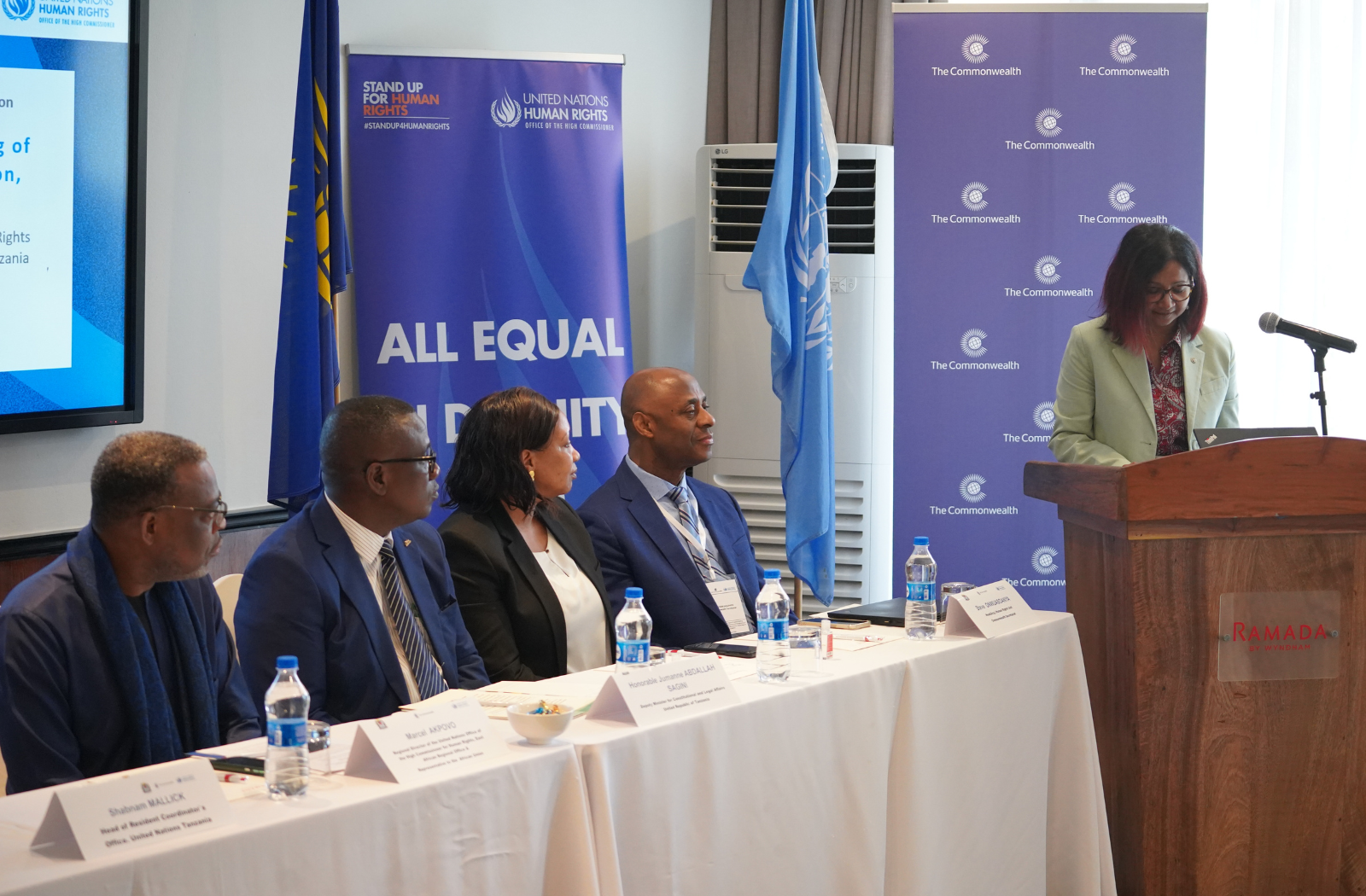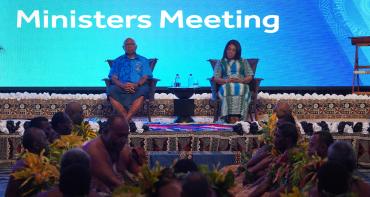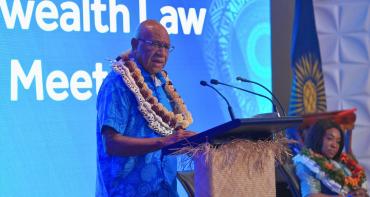Fourteen Commonwealth African countries were trained last week to improve reporting on their human rights obligations, including the protection of basic economic, social and cultural rights for all.

The improved reporting, including on the follow-up recommendations from the United Nations (UN) Human Rights Treaty Bodies, makes it easier for countries to turn their human rights obligations into a reality.
In partnership with the Government of Tanzania and the Office of the United Nations High Commissioner for Human Rights, the Commonwealth Secretariat hosted 42 senior officials from 14 member countries for a regional workshop in Dar es Salaam from 1 to 3 October 2024.
Delayed reporting
While all participating countries have ratified several of the nine core human rights treaties, many face significant delays in submitting reports to treaty bodies, with some overdue by more than a decade.
This backlog is often the result of limited capacity to manage data and maintain institutional memory, challenges the workshop aimed to address.
The workshop saw participants share good practices and experiences to help clear the backlog of reports to human rights treaty bodies, as well as under the voluntary national reviews of the Sustainable Development Goals.
Participants were guided through various approaches to establish or strengthen National Mechanisms for Implementation, Reporting, and Follow-up (NMIRFs) – an inter-ministerial structure to improve coordination among various government agencies to collect information and prepare national reports.
One of the participants, Bucyana U. Allen, Assistant Commissioner, Legal, from Uganda, praised the workshop for simplifying what she had once viewed as an “onerous exercise”.
“We had facilitators from the UN here. We got to know what exactly is expected from us that should improve our reports to ensure it speaks to their expectations,” she explained, reflecting on her key takeaway.
Similarly, Nozipho L. Mazibuko, State Reporting Coordinator from Eswatini, valued the workshop for addressing the challenges she faced in implementing recommendations from human rights bodies.
She expressed hope that these new insights would help ensure the full realisation of human rights for the people of Eswatini.
‘A timely workshop’
Opening the workshop, Hon Jumanne Abdallah Sagini, Deputy Minister of Tanzania’s Ministry of Constitutional And Legal Affairs, acknowledged the close link between human rights and development.
Hon Jumanne Abdallah Sagini said:
“African states have a number of mechanisms in place to uphold the same. Because of a multiplicity of mechanisms and reporting, it is important to harmonise those systems in order to reduce duplicity, minimise costs, and incorporate relevant data in a timely manner.
“There are a number of issues to navigate in order to remain effective. Therefore, this workshop is timely and will support us in establishing and reforming the systems to enhance the important work of NMRIFs.”
‘Stronger protections’
In his remarks, Steve Onwuasoanya, Acting Head of the Secretariat’s Human Rights Unit, emphasised the critical importance of the workshop in bringing African member countries together to address their unique challenges and find solutions to improve their reporting to international human rights treaty bodies.
“This matters,” he explained, “because when countries comply with their obligations under these treaties, it leads directly to stronger protections for women, men, children, and young people, and paves the way for sustainable development, ensuring human rights are at the heart of progress.”
Marcel Akpovo, East Africa Regional Director, Office of the United Nations High Commissioner for Human Rights, acknowledged the challenges countries face in engaging with international human rights treaty bodies.
He expressed optimism, stating: “We hope that events like this one will encourage participating states to prioritise building sustainable institutional solutions to engage with human rights mechanisms and retain institutional knowledge.”
The workshop concluded with the adoption of an outcome statement, with participants making several commitments. These include developing action plans to keep human rights treaty reporting on track and creating a regional network to exchange good practices.
Media contact
-
Snober Abbasi, Senior Communications Officer, Communications Division, Commonwealth Secretariat



